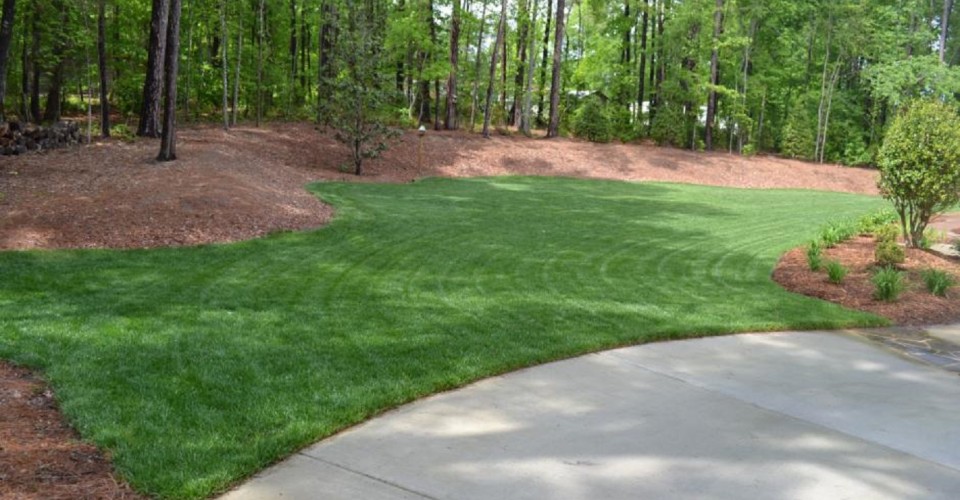Not only is it possible to survey your own tract of land, it can become an interesting pastime for you as a homeowner. While you can rent, borrow or buy the necessary equipment for a DIY survey, you can get a better understanding of the lay of your land by deciding to hire a surveyor. Instances where the results are intended to have ramifications outside your own curiosity require a professional surveyor. The results can only be made legal and form the basis of where your property begins and ends when the work is performed by a licensed surveyor. Some states have laws that prevent you from doing your own surveying work and require only a licensed surveyor to complete this task. Where you live will have a big impact on your decision, or even legal right, to DIY a land-surveying project.
Why you need a survey
Knowing exactly the boundaries of your property is important for many reasons. If you’re looking to purchase a piece of property, you may want physical boundary markers so you know exactly how much land you might own. Want to install a fence or landscaping? Knowing the property lines is important so that you place items on your side of the boundary line, not your neighbors. Properties bought and sold should be of public record however hiring a surveyor to physically mark your land is the best way to know exactly where the boundaries are. Many zoning regulations, permits and building codes base their regulations on the property line. For example, a home may need to be no closer than 15 feet from the property line. It’s in the best interest of the homeowner to have these boundaries properly marked. You’ll also need a survey for addressing disputes from neighbors or providing official documentation in purchase and sale agreements, among other uses.
Why DIY?
Surveyors can be expensive, running from several hundred to a couple thousand dollars. The estimate you are given will likely be based on several line items including the following:
- A record search
- Size and shape of property
- Sectionalized survey work
- Terrain and vegetation
- Existing evidence on the property (e.g., monuments, old fences, and occupation lines)
- Local knowledge of property
- Difficulties with abutters
- Seasonal constraints
- Requirements for title companies and public agencies
- Record of survey
Because so many variables exist, it can be difficult to judge the cost without knowing the specific parameters of your property. Often times, exact costs aren’t known until the project is completed, although you will be quoted an hourly rate, with final costs dependent on the surveyor’s experience with similar jobs and general knowledge of the surrounding area.
If you don’t have the money in the budget to hire a surveyor, you can rent the equipment do this yourself at a fraction of the cost. However, your results will have no legal force, unless you yourself are a licensed surveyor. As a citizen, you can find where your boundaries are, but only a professional surveyor can set or adjust property boundaries. However, if you already know where your boundaries are and you want to survey the inside of your property line, no one can tell you otherwise. This is where the hobby part of the task comes in and can be fun to tackle. As such, you can use the results to plan out virtually any project, from gardening to landscaping.
Call a surveyor
In some states, a land transaction is legal only when on file with the county recorder. There may be laws on the books that prevent homeowners from performing this work. If that is the case, you have no choice but to call a surveyor for this service, as many jurisdictions recognize only licensed surveyors’ reports. To find out either way, you can contact your local Government Land Office.
You’ll need to hire a surveyor if you’re planning any of these projects:
- Buying or selling land
- When land needs to be subdivided by deed
- Mortgage loan inspection by lending institution
- Before building a house, fence, septic system or anything else close to property line
- As required in accordance with permitting
- Drainage planning and subsurface utility studies
- Purchasing title insurance
- Dispute with neighbor over where property line is
Why you should hire a surveyor
Instrumentation
If time is of the essence and you must get the surveying project done quickly, such as in the event of obtaining a permit or buying a home, call in a surveyor. They have the tools, knowledge and skills to get the job done right. Instruments can include transit levels, surveyors safety vests, land surveying tripods, surveying bipods, brush axes, land surveying markers and rods, surveying prisms, and GPS equipment.
Skill
Surveyors handle all aspects of a surveying project, from locating buildings and fences to appearing in court as an expert witness. They can also review your deed and compare it with all available evidence, set up identifying markers on your property, prepare boundary measurements, prepare existing conditions mapping, and produce flood certificates relating to the property. Making the decision to DIY your land surveying project or hire a professional depends on many factors, not the least of which are your state’s laws regarding the matter. Weigh each factor carefully before deciding to tackle this project on your own or hire a professional.
Top Image Credit: Mclamb’s Landscaping Co.




